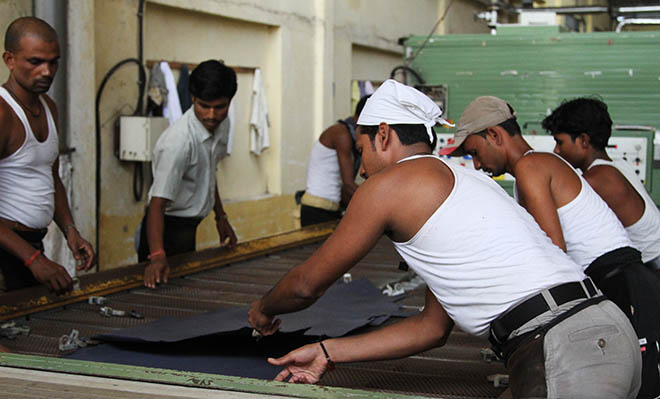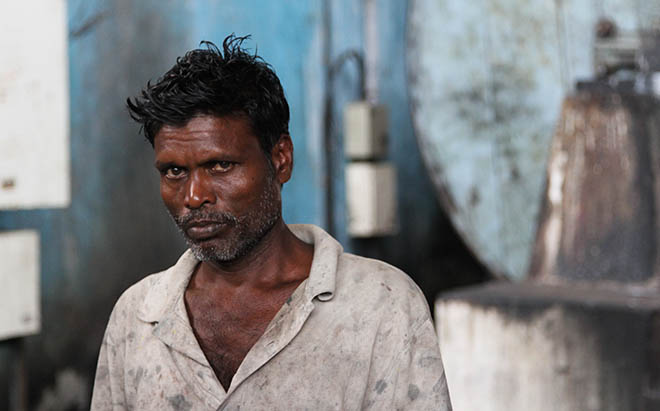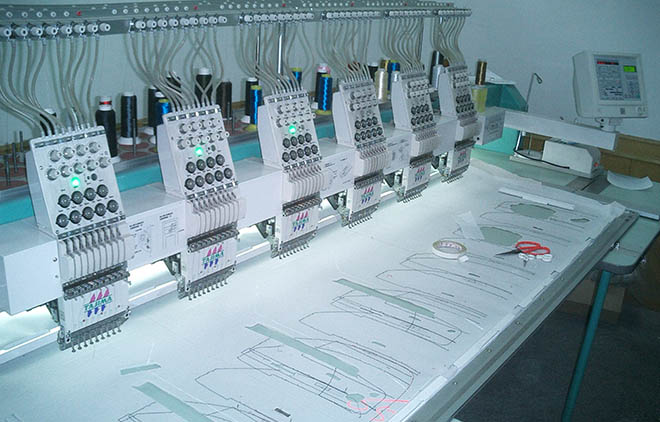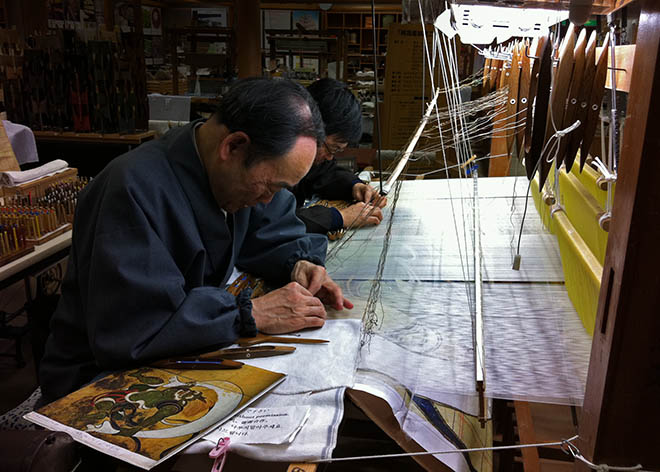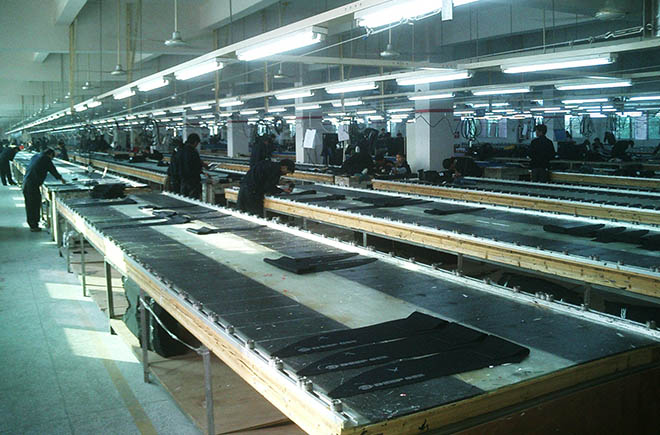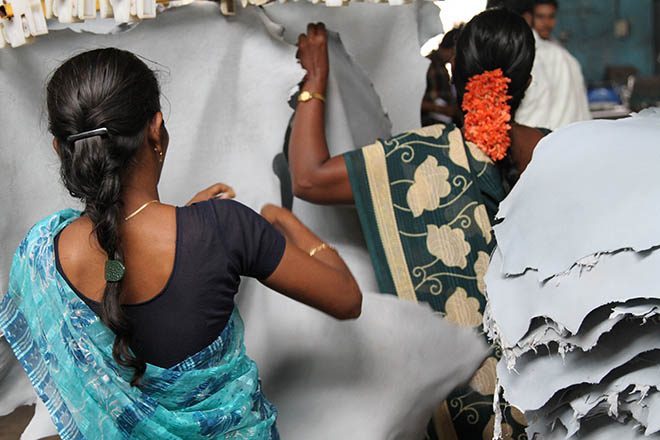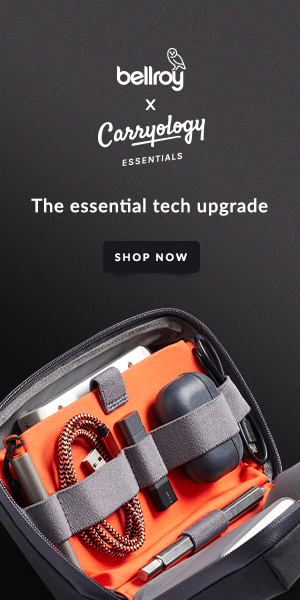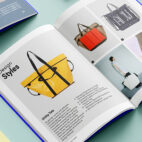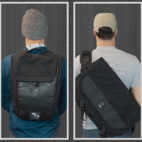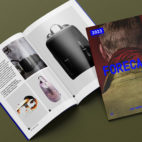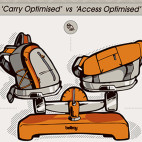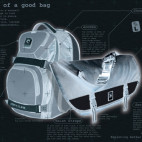Insights :: Made In…
Note: There have been slight ammendments to this post to incorporate some great feedback from the comments…
–
Picture a really hardworking guy, sewing awesome backpacks as he tries to support his family. He works long hours, takes loads of care with his work, and tries to do an excellent all-round job so that he can put food on the family table, send his kids to school, and generally be a good human.
–
Does it matter what country this guy lives in?
–
If he does great work, should we decide whether or not to support him just because of his race, birthplace, or what his government (that he probably didn’t vote for) does?
–
Meanwhile if I have a neighbour who is a lazy slob, who disses his kids, boozes each night, and slaps together shoddy backpacks that he doesn’t respect, is he more deserving of my business just because he’s my neighbor?
–
Global communities
We run a global blog, trying to unearth the best carry goods, made in responsible ways, no matter where they are made in the world. We see bag candy from Japan, tech craziness from Europe, a craft renaissance from the US, and some great innovations from the UK, Singapore, Indonesia and China. In every country, there are good people doing good things. We try to recognise and share the best of those things, hoping to bring them to global attention.
In recent years though, we have seen a massive shift back to supposed ‘patriotic’ buying behavior, and that feels like regression rather than progression. We think the goal should be to buy awesome product that is responsibly produced, rather than ignoring awesomeness because it comes from people less like you.
So what’s at the core of good product?
Generally, the best carry gear has been influenced by consumers, designers, brands, pattern-makers, sewers and component makers, all brought together with understanding and cohesion. If any one area is lacking, the product is usually not as good.
Some brands tackle one or two of the stages in this chain, and outsource the rest. Some tackle most of the stages. A very few tackle almost all the stages. The more stages you tackle, the less specialist you can be in each of the stages.
This is why many of the best carry brands draw from the expertise of a global industry. If you can find a way to unite the best expertise from around the globe, your product can reach levels that few others have.
–
Extra benefits to a global approach
–
This global approach has more benefits than just better carry product. If you have 4 minutes, check out this short video from Hans Rosling and his team at Gapminder, as they help show that a globalizing world is helping increase wealth and health like never before.
–
As our parents were buying their backpacks from China, they were unwittingly helping save millions of babies from abject poverty, while also being able to afford a backpack they might not have previously been able to. The net result is a journey like Japan took after WWII, from a reasonably poor nation producing cheap but often variable goods, to the global quality powerhouse they are today. There are lots of nations starting similar journeys, working their butts off to win a share of our hearts and pockets. Some make crap, some make incredible stuff.
–
So what are the downsides?
When we move further away for sourcing, it is both harder to manage communication between all the contributors, and harder to know what ‘baggage’ comes with the goods we buy. These are not easy challenges, but lots manage them well.
We learn to develop systems to monitor and share information, just as we have learned to do that in our own countries, identifying and eliminating unsafe work conditions or polluting practices. The monitoring that Nike and Walmart now do is often much more thorough in Asia that it is in the USA or western countries. Of course we need to stay on top of this, but we still need to stay on top of it in our own countries as well.
Some also talk about skill levels in different countries. If you believe that Asia is somehow lacking here, I urge you to really look closely at high-end, Asian-made carry brands (The North Face, Osprey, etc). You’ll find that the panel work, construction and detailing is incredibly high, being more sophisticated in patterning than almost any others. When you realise these guys have patterned and built millions of backpacks, compared to many western brands who have only recently started (sometimes with little more than their mom’s sewing machine and a YouTube tutorial), you realise why many top brands prefer to source from Asia.
–
And a final downside that many talk about is their ‘economy’. The thing here is that if you speak to the large majority of economists they’ll tell you that open borders help us in the long term. When we close down borders, we all become generalists rather than specialists – which is a fancy way of saying we become crap because we’re trying to do everything. As we become crap, things get more expensive, stop getting better, and life ain’t as fun.
I’d recommend EconTalk if you’d like to find out more about this.
This is not a new discussion, but it is important
–
There have already been some excellent posts discussing these issues. If you have time, check out KTC’s local Chinese perspective or The Bag Collector’s insightful post.
We wanted to add our voice to these, as it feels like the roar of ‘patriotic buying’ is starting to drown out the desire for good product. And when we see the product suffering, that sucks.
If you’ve read all that and still think that foreign stuff can’t be as good as your own country’s stuff, maybe George Bernard Shaw can plant a tiny seed of questioning:
–
“Patriotism is, fundamentally, a conviction that a particular country is the best in the world because you were born in it.”
–
Aloha.
–
*All images from Ando on my travels…





 Carry Awards
Carry Awards Insights
Insights Liking
Liking Projects
Projects Interviews
Interviews
